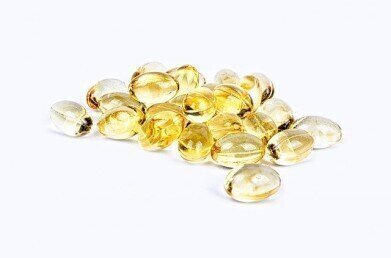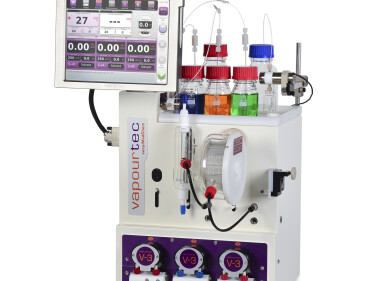Laboratory Products
How Does Vitamin D Affect COVID-19 Infection?
Jun 14 2020
New research from Northwestern University suggests Vitamin D levels could play an important role in the body’s reaction to the COVID-19 disease. After analysing data from 10 countries, the team noticed a link between hyperactive immune systems and Vitamin D deficiency. Lead author of the study Vadim Backman warns lack of Vitamin D can increase mortality rates, with severely deficient patients 50% more likely to experience potentially fatal complications due to COVID-19.
Boosting the immune system
Used to describe a cluster of fat-soluble secosteroids, Vitamin D increases intestinal absorption of important minerals such as magnesium, calcium and phosphate. This ramps up immunity and prevents the immune system from ticking into overdrive, which can be fatal during a COVID-19 infection.
Backman and his team were prompted to explore the role of Vitamin D levels after noticing significant mortality rate differences between countries. For example, COVID-19 mortality rates were noticeably higher in the UK, Spain and Italy. While some experts put this down to age demographics, testing rates, quality of healthcare and even the possibility of different and more severe coronavirus strains, Backman suspected it could be driven by something else.
"None of these factors appears to play a significant role," asserts Backman. "The healthcare system in northern Italy is one of the best in the world. Differences in mortality exist even if one looks across the same age group. And, while the restrictions on testing do indeed vary, the disparities in mortality still exist even when we looked at countries or populations for which similar testing rates apply.”
The risk of cytokine storms
After analysing data, the team found a high COVID-19 mortality rates correlated with low Vitamin D levels. For Backman the findings could explain why symptoms can vary so drastically, as well as why children are unlikely to die from the disease. "Instead, we saw a significant correlation with Vitamin D deficiency," he said.
Postdoctoral research associate and first author of the study Ali Daneshkhah says cytokine storms, which can cause severe damage to the lungs and trigger fatal acute respiratory distress, are often the cause of death in COVID-19 patients. They’re caused by misdirected attacks from the immune system, with Daneshkhah musing that Vitamin D can help prevent this sort of pattern.
"Our analysis shows that it might be as high as cutting the mortality rate in half," says Daneshkhah. "It will not prevent a patient from contracting the virus, but it may reduce complications and prevent death in those who are infected."
Experts warn against hoarding
The researchers caution that while Vitamin D is being explored as a potential preventative treatment for COVID-19, hoarding supplements is not advised and could even be dangerous for people with balanced levels of Vitamin D.
"While I think it is important for people to know that vitamin D deficiency might play a role in mortality, we don't need to push vitamin D on everybody," adds Backman "This needs further study, and I hope our work will stimulate interest in this area. The data also may illuminate the mechanism of mortality, which, if proven, could lead to new therapeutic targets."
Technology is at the heart of the fight against the coronavirus. To find out more about the latest scientific developments don’t miss ‘Automated Cell Counting Shouldn’t Cost the Earth.
Digital Edition
Lab Asia 31.2 April 2024
April 2024
In This Edition Chromatography Articles - Approaches to troubleshooting an SPE method for the analysis of oligonucleotides (pt i) - High-precision liquid flow processes demand full fluidic c...
View all digital editions
Events
Apr 17 2024 Tokyo, Japan
Apr 22 2024 Marrakech, Morroco
Making Pharmaceuticals Exhibition & Conference
Apr 23 2024 Coventry, UK
Apr 23 2024 Kintex, South Korea
Apr 23 2024 Seoul, South Korea









.jpg)








